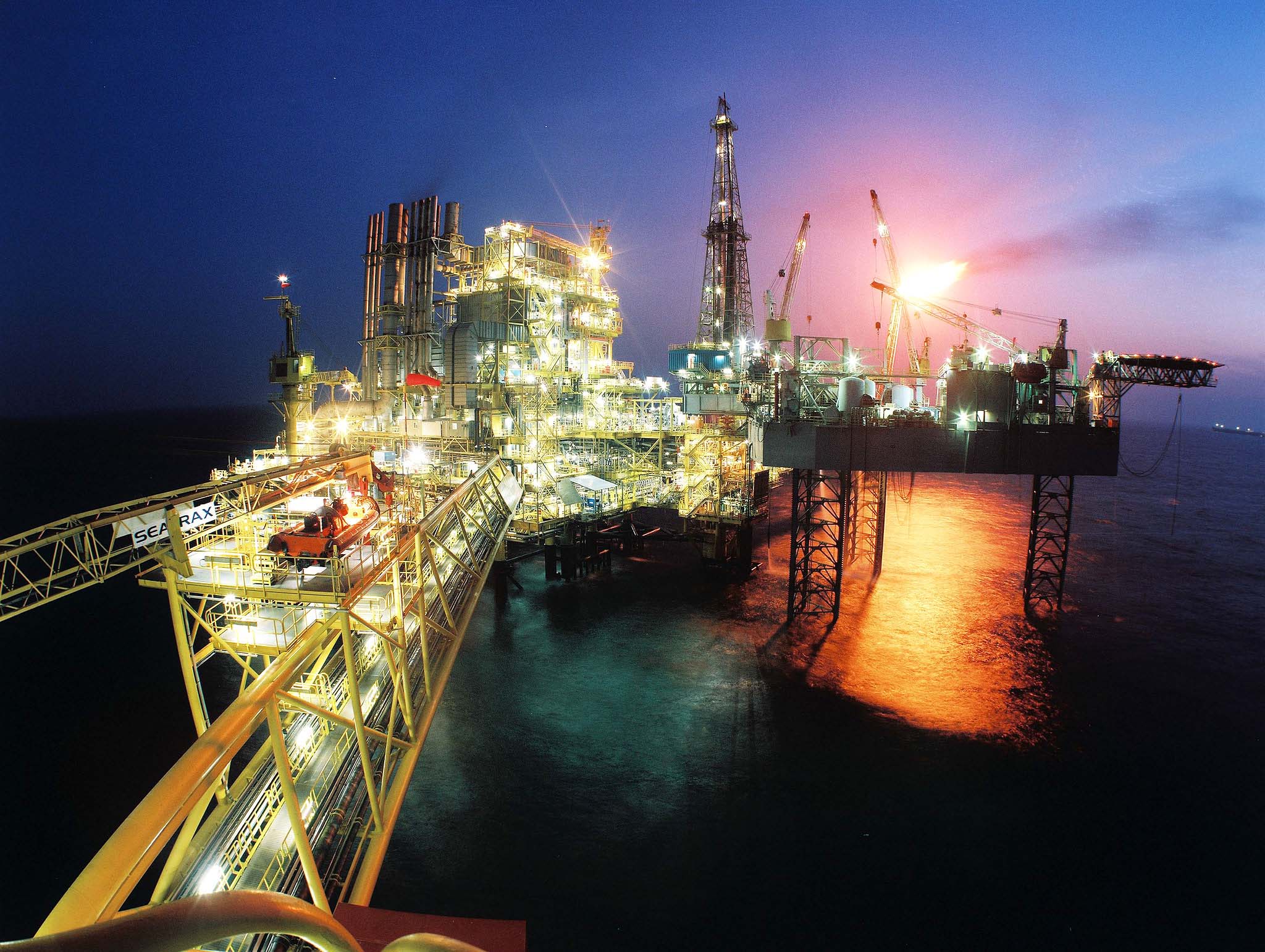To fight global warming, world leaders are initiating plans to replace oil with renewable energy, but is Qatar doing enough to diversify its economy?
Qatar’s former prime minister on Saturday warned Gulf states of the inevitable end to the era of oil, saying that oil “is now at the last quarter of its life.”
Hamad bin Jassim bin Jaber Al Thani took to social media to address the issue, opening up a discussion with more than 380,000 followers on Twitter.
“The current rise in oil prices could be the last or the penultimate stage of the surge, and then prices will begin to gradually decline as the era of oil is in the last quarter of its life,” the former PM said.
This is “in light of the many energy alternatives available in the market at competitive prices and eco-friendly quality, as the west claims,” he continued.
قد يكون الارتفاع الراهن في أسعار النفط الدورة الأخيرة أو قبل الأخيرة من الارتفاع ومن ثم ستبدأ الأسعار بالانخفاض تدريجياً، ذلك أن عصر النفط بات اليوم في الربع الأخير من حياته في ضوء ما تشهده الأسواق من بدائل طاقة كثيرة للنفط بأسعار منافسة وبنوعية صديقة للبيئة، كما يدعي الغرب.
— حمد بن جاسم بن جبر (@hamadjjalthani) March 13, 2021
Recently, climate change has catapulted to the top of priority lists across the world, especially in Europe, where many states have already set goals to abandon fossil fuel in exchange for renewables as early as 2025.
The former Qatari PM warned GCC nations from their continued reliance on oil revenue and pointed out the need to make swift decisions to develop non-oil sectors.
Read also: Turkish exports to Qatar to hit $1 billion in 2021
Investment funds and the accumulation of financial reserves, despite their advantages, may not be sufficient to build a real and effective economic power in the region in various sectors, he said.
In building these sectors – advanced technological agriculture, internal services industry, tourism, financial services, the specialised micro-petrochemical industry, education, health, information technology – Gulf states will be able to withstand the expected repercussions of a decline in oil revenues, the senior Qatari official added.
وأن يكون الصرف على المشاريع ذات الجدوى الاقتصادية أو الاجتماعية وتجنب طرح مشاريع غير مفيدة بمجرد أنها من هوايات الحاكم أو مبنيه على أسس ليست صلبه.
— حمد بن جاسم بن جبر (@hamadjjalthani) March 13, 2021
“Spending will then be on projects of economic or social feasibility,” he added urging Gulf leaders to “avoid proposing unhelpful projects simply because they are the hobbies of the ruler or are built on foundations that are not solid.”
Despite his comments, states around the region have kickstarted attempts to diversify economies to prepare for the post-oil era.
Qatar’s economic development was based initially on its onshore and offshore oil, of which about 50 years of reserves remain at current production levels. “However, the urgent need for diversification from oil and gas revenue has necessitated the intensified efforts by the government to diversify the economy away from hydrocarbons and boost the participation of the private sector,” Adnane Allouaji, analyst at The Economist Intelligence Unit told Doha News.
In Qatar, the “Vision 2030” reform drive to overhaul the economy has tapped into establishing free zones, integrating a major self-sustainability plan and expanding its international investment portfolio.
Most recently, authorities announced plans to expand LNG facilities to become the world’s largest producer of liquified natural gas [LNG] by 2030.
“The infrastructure needs of the 2022 World Cup and the 2030 National Vision, together with the planned expansion in liquefied natural gas (LNG) production, provide profitable
investment opportunities for foreign and domestic contractors,” Allouaji said, noting the state has eased some restrictions on foreign participation with the aim of sharing the
financing burden of these projects with the private sector.
“Qatar is set to face considerable economic pressure over the long term as the global transition away from fossil fuels leads to lower energy prices, although Qatar is better placed than its oil-exporting neighbours because of its diversification into gas, a cleaner fuel,” Allouaji added.
“While there have been attempts to diversify the economy in Qatar, these efforts have been challenged”
Meanwhile, Steven Wright, Associate Professor of International Relations and the Associate Dean for Academic Affairs and Research in the College Humanities and Social Sciences at Hamad Bin Khalifa University said Gulf states know what is expected for survival.
“We are preparing for this transition and ultimately speaking, they have to migrate, they have to move from the oil age to the renewable age,” the professor told Doha News, quoting the former Saudi Minister of Petroleum and Mineral Resources Ahmed Zaki Yamani who said “the stone age did not end because we ran out of stones.”
The same thing applies to the oil age, the professor said.
“It is basically just going to progress in terms of renewables and in particular, the hydrogen economy.”
While there have been attempts to diversify the economy in Qatar, these efforts have been challenged by the lack of skills among Qatari workers and excessive red tape within government, Allouaji said. Fiscal reforms—involving reducing the number of workers in the overstaffed state bureaucracy and subsidy reductions—have proceeded slowly, owing to
political caution.
“Towards the middle of the century, as hydrocarbons revenue plateaus, the state will increasingly draw on income from its vast sovereign wealth fund and foreign-exchange reserves to finance the budget and maintain high levels of domestic demand,” Allouaji added.
Follow Doha News on Twitter, Instagram, Facebook and Youtube







